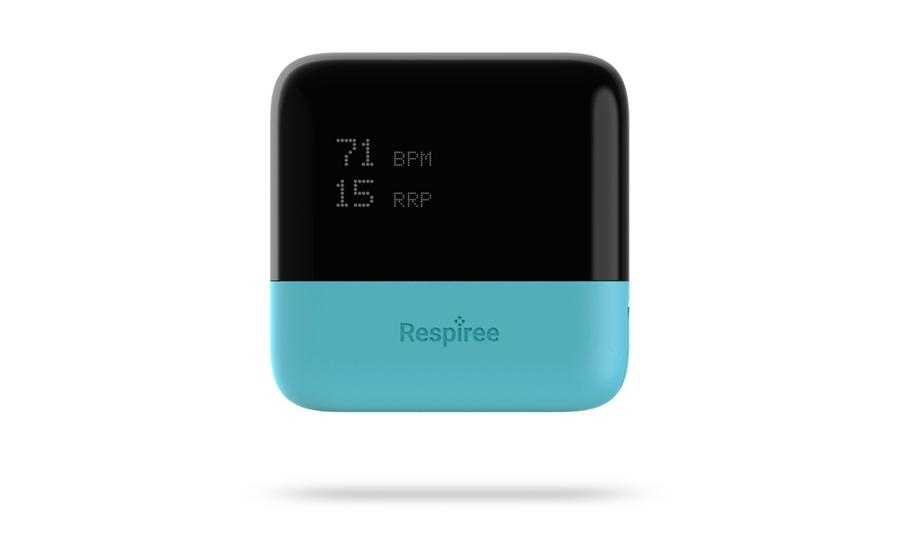FDA approves Respiree’s cardio-respiratory wearable

A sensor worn on the chest that can monitor patients’ heart and lung vitals in real time has been approved by the FDA.
The RS001 device – developed by Singapore digital health company Respiree – measures heart rate and respiration directly and in real-time and, according to its developer, plugs a gap in monitoring of patients with diseases like congestive heart failure and chronic obstructive pulmonary disease (COPD).
It is part of a remote patient monitoring (RPM) system developed by A*STAR spinoff Respiree, alongside a finger sensor for measuring oxygen in the blood and a computer to receive and analyse the data, displaying it as a dashboard that can be viewed by healthcare workers.
Continuous respiration monitoring can provide valuable early warning that a COPD patient is heading for an exacerbation, a sudden worsening of symptoms associated with increased airway inflammation that can leave behind irreversible damage to lung tissue and in the later stages of the disease can be fatal.
Data on the respiratory rate, heart rate, and other biomarkers like oxygen saturation in the blood can be an accurate predictor of clinical deterioration, but in a busy hospital setting taking readings at the patient’s bedside – which can take up to three minutes to perform – is intermittent at best.
RS001 draws on a machine-learning algorithm developed in partnership with Changi General Hospital in Singapore that has been trained to detect signs of clinical deterioration and in studies performed better than conventional early warning score (EWS) monitoring.
Already in use in hospitals outside the US, including in Australia where it was approved in 2019, it can replace manual charting of vital signs and monitor patients both in hospital and at home.
Moreover, it can provide warning of a COPD flare-up “not hours or minutes in advance, but days in advance”, according to Respiree’s chief executive and co-founder, Dr Gurpreet Singh. The system has also been used in Singapore to monitor patients hospitalised with COVID-19 during the pandemic.
Respiree said that, with this first 510(k) clearance for the RS001 sensor, it plans to seek additional approval clearances alongside the artificial intelligence-powered software to analyse digital biomarkers from the RS001 in order to predict deterioration in diseases such as COPD and congestive heart failure.
According to the US Centers for Disease Control and Prevention (CDC), COPD affects 15.7 million Americans, causing more than 150,000 deaths each year.
US company Spire Health has also developed a respiratory RPM sensor to predict exacerbations in COPD patients, which is already being deployed in US hospitals.











